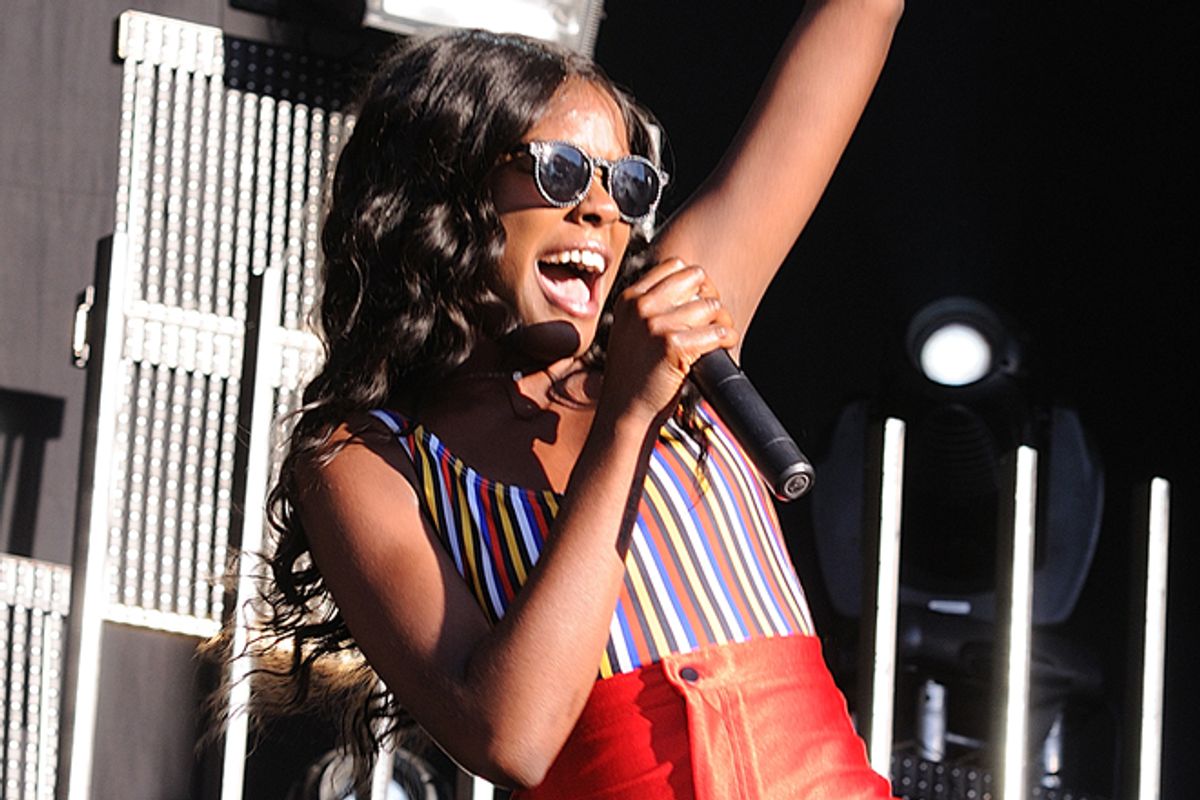The rapper Azealia Banks’ social media meltdown last week — culminating in her calling the gay blogger Perez Hilton a “messy faggot” — continues to suffer fallout. This morning brings rumors that Interscope Records has dropped the rapper. Banks has not apologized for her remarks. Indeed, she's amplified them, noting: “A faggot is not a homosexual male. A faggot is any male who acts like a female. There's a BIG difference.” A GLAAD spokesman this morning indicated that she has also ignored attempts from the advocacy firm to make amends for the homophobic slur.
“In this case, it was not a slip of the tongue but a very deliberate statement that she has defended,” said Rich Ferraro, GLAAD’s vice-president of communications. “There’s certainly a trickle-down effect for young people when a celebrity they follow defends the use of words like this. It enables them to use words like that on the playground.”
There is a long history of homophobia in hip-hop: Even as gay-friendly a rapper as the candy-colored Nicki Minaj felt the need to release a track with Eminem in which he bashes her gay audience by dropping the other F-bomb. And practically no utterance between two men in hip-hop can go without a statement like "No homo" or "pause," indicating that the musician isn't, well, a fag. Banks, as well as R&B singer Frank Ocean (who’s affiliated with the at times virulently antigay crew Odd Future), seemed to be ending the old hegemony; Banks is an open bisexual, while Ocean admitted this past summer to having been in love with a man, though he does not define himself. Though many queer people use homophobic slurs to one another, this is more in keeping with hip-hop tradition than the subversive privilege of mutually oppressed people.
“The end goal has to not be about Azealia Banks but about the young people who follow her,” said Ferraro, noting that the organization was no longer attempting to be a “watchdog” condemning behavior but rather engaging with celebrities on the social Web. The group’s tweets at Banks (one example is here) invited her to engage in a dialogue with bullied gay teens. (Not all of GLAAD’s campaigns of tweets at celebrities have resonated as well — the group’s strange misunderstanding with reality-show judge Blake Shelton presumed his rewriting of a Shania Twain song was meant to be sung by a gay-bashing man, rather than Twain herself.) Banks didn’t write back, said Ferraro, nor did her manager respond to GLAAD’s request. Rather than continuing to attempt contact, the group has been working over the weekend to put together responses from young people, including Banks’ fans, about their experience of hearing slurs. “We’ve heard from Azealia Banks about what this word means, and we’ve heard from GLAAD about what this word means,” said Ferraro.
The response to the Banks imbroglio on GLAAD’s website presumes Banks’ ignorance of the term’s history and how it offends; it’s fairly similar to the treatment of former "Grey’s Anatomy" star Isaiah Washington, who called a castmate a “faggot” on-set and using the term again at the Golden Globes. He ended up shooting a PSA for GLAAD, but was fired from his hit show and left the public eye thereafter.



Shares